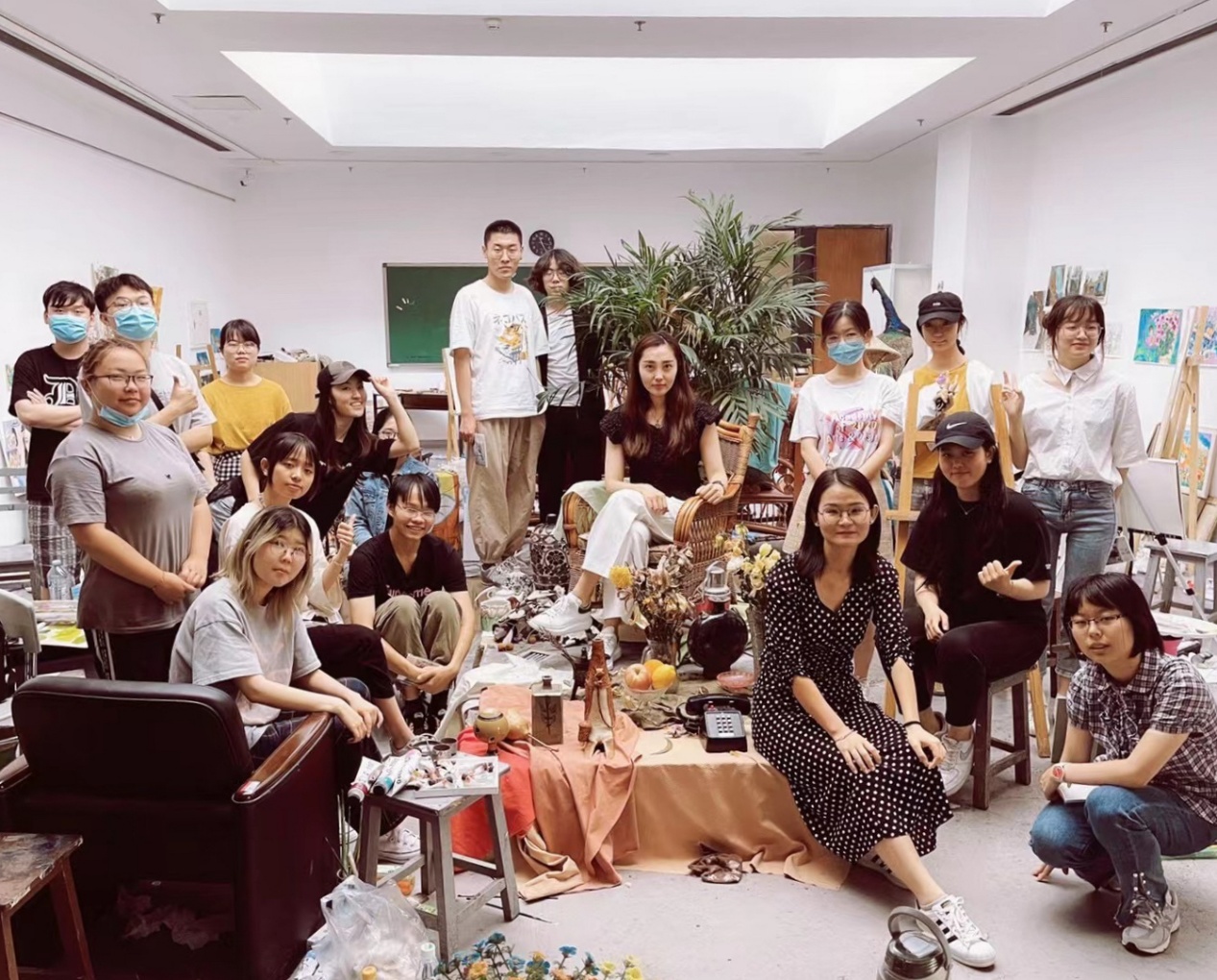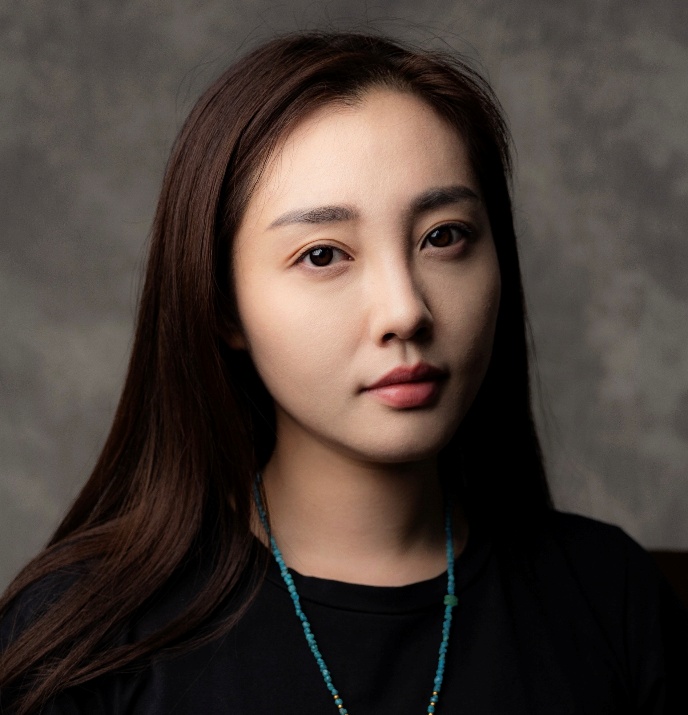
Associate Professor, Department of Painting, Academy of Arts & Design, Tsinghua University
Tsinghua University Zhongying Young Scholar
Deputy Director, Student Affairs Working Group
Deputy Director, Aesthetic Education Research Institute, Academy of Arts & Design, Tsinghua University
From wide-eyed student to dedicated educator, Yu Wanying has journeyed through Academy of Arts & Design, Tsinghua University, completing her undergraduate, master’s, and doctoral studies before joining the faculty to nurture future generations.
As a student, her works, from the undergraduate graduation piece Farewell to Spring to the master’s thesis Walking Along the Seine, a four-meter scroll capturing Parisian life, and the chiaroscuro exploration Whispers of Ivy, revealed her grasp of “art rooted in lived experience” and her interpretation of historical humanistic traditions. This philosophy crystallized during her Ph.D. research on art’s role in Tsinghua’s educational legacy, helping her construct a robust intellectual framework and recognize art’s profound significance in the university’s tradition of talent cultivation.
In 2020, Yu became a faculty member at Academy of Arts & Design, Tsinghua University. Balancing research and creation, she introduced inquiry-based learning to undergraduate classrooms, guiding students to perceive, reflect, express, and innovate.
“Art education aims to cultivate aesthetic literacy and transform it into observational acuity, imaginative power, and creative expression,” Yu asserts. Her pedagogical vision aspires to shape students into “whole persons” who engage deeply with the world and their inner selves. She often remarks: “Science enables better living; art teaches us how to live.”
Impressions of Tsinghua University
In the summer of 2010, Yu enrolled in Tsinghua University’s Chinese Painting program. Over the next decade, she immersed herself in the campus’s intellectual soil, studying oil painting as a graduate student, pivoting to art theory for her Ph.D., and honing her craft under the mentorship of revered artists. She sought a synthesis of Eastern and Western traditions, internalizing the maxim: “True art belongs to the people and springs from life.” Wu Guanzhong’s “brushwork is zero” inspired her, artistry need not be constrained by formulaic techniques.

Walking Along the Seine (Water-based pen)
During her 2016 Paris residency, Yu wandered along the Seine, absorbing the city’s romance. With just a water-based pen, she rendered Walking Along the Seine, a four-meter panorama intertwining reality and imagination, a testament to art’s organic connection to life.
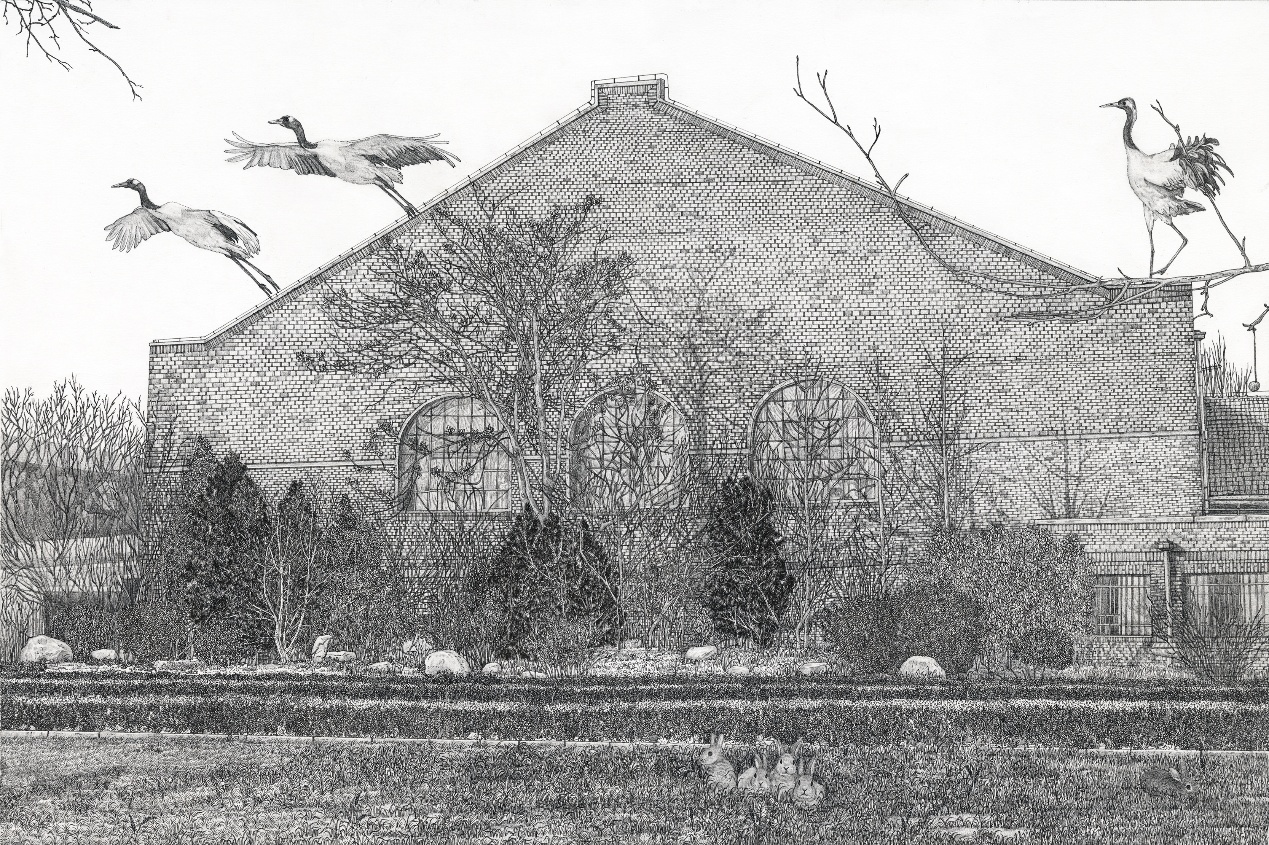
The Migratory Value of Sports (Water-based pen, paper)
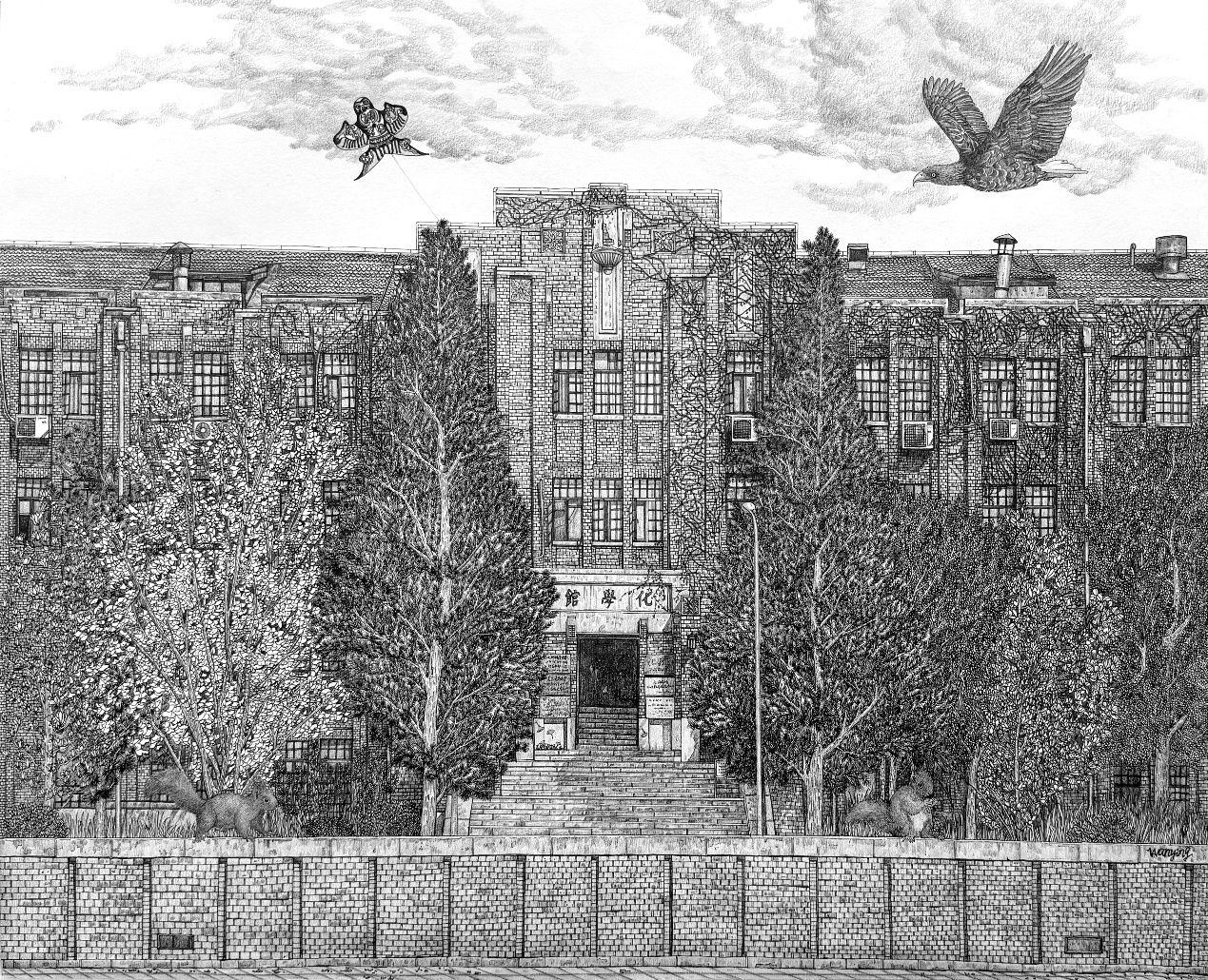
Garden of Elements (Water-based pen, paper)
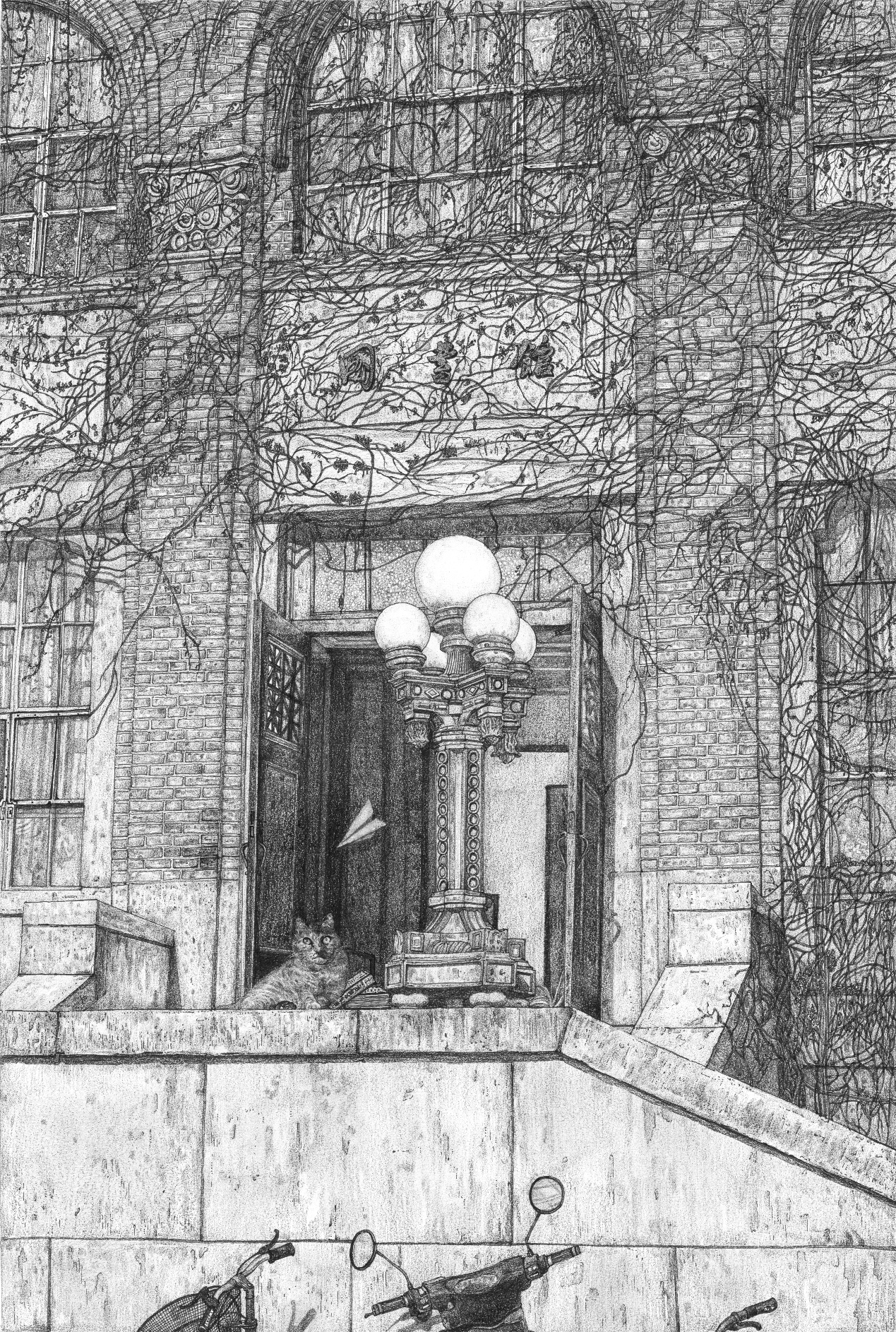
Evergreen Ivy in the Courtyard (Water-based pen, paper)
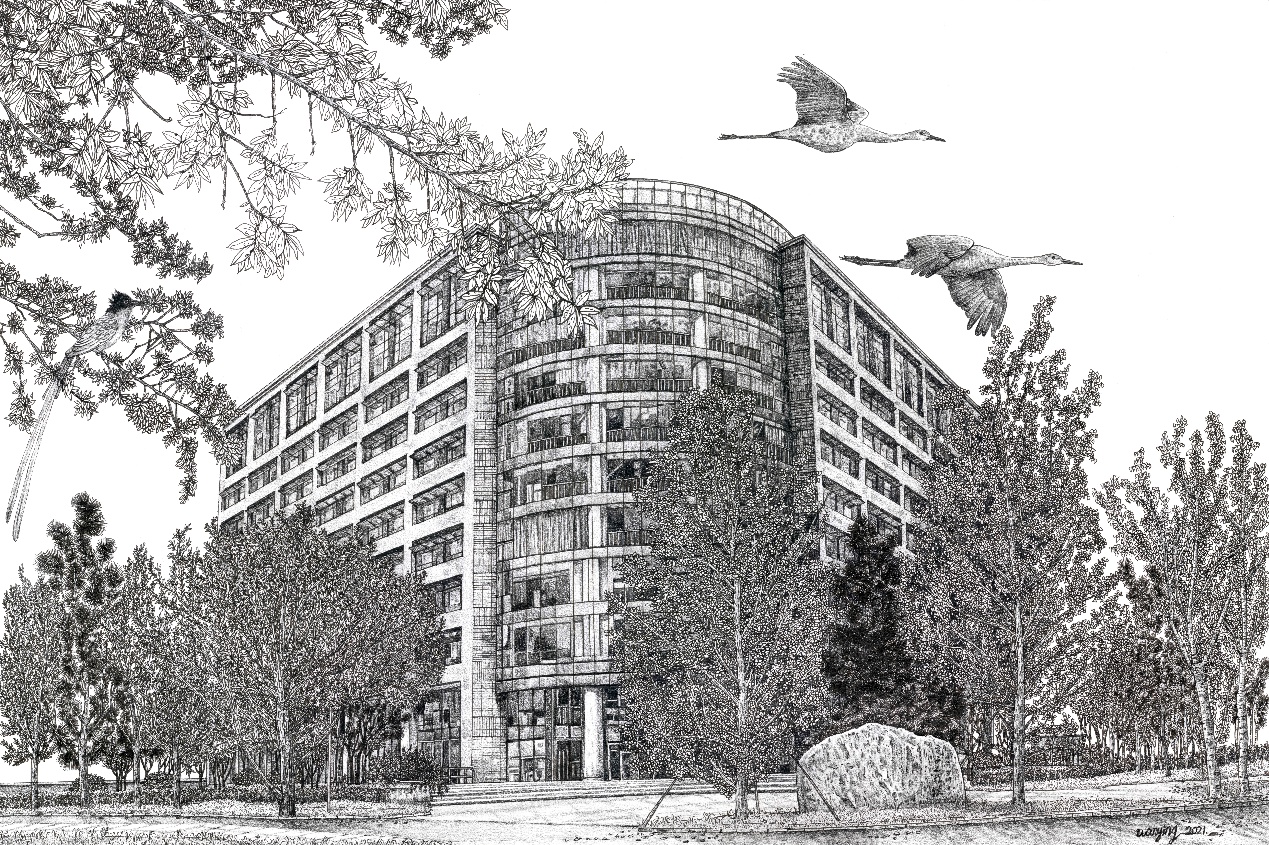
Chasing Autumn Winds (Water-based pen, paper)
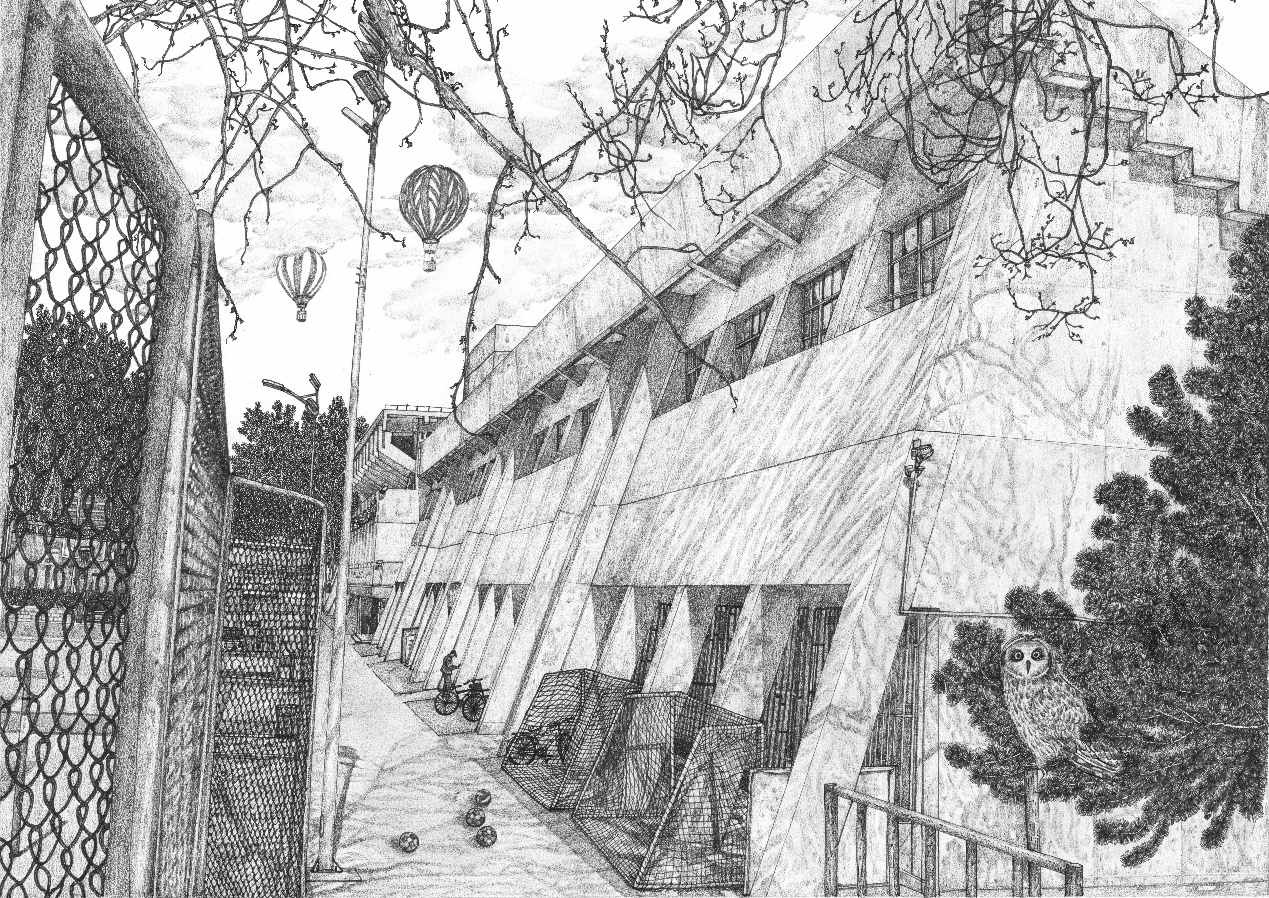
Athletic Silhouettes (Water-based pen, paper)
Her return to Tsinghua University inspired a monochromatic series celebrating the campus’s understated elegance. Daily, she meticulously sketched bicycles huddled together, intricate sundial patterns, rounded library lampposts, and marble bridges draped with lotus leaves, transforming the mundane into lyrical art.
This discipline refined her technique and quest for a transcendent visual language. Her later works reveal a signature style: delicate lines build complexity, ink rhythms evoke dreamscapes, and perspectives challenge conventions.
Tsinghua’s cultural weight also steered her doctoral focus toward art’s historical impact on the university, research that later fueled her teaching.
“Aesthetics Precede Creation; Creation Is Research”
In 2020, as a new faculty member, Yu initially faltered before her students. She bridged the gap by adopting an “elder sister” approach: “Learn alongside them.” The strategy worked, students trusted her enough to openly discuss artistic struggles.
Yu views teaching as “a co-creative process, not a monologue.” Her pedagogy prioritizes aesthetics over technique, replacing rote replication with “inquiry-based art education.” In her “Western Oil Painting Appreciation” class, students gather as she demystifies masterworks’ brushstrokes and contexts, asserting: “Higher art education must transcend skill to provoke critical thought and cultivate independent expression.”
For Yu, “Aesthetic sensitivity grounds creation, but true art demands questioning. It emerges from cultural insight, art-historical perspective, and lived experience.”
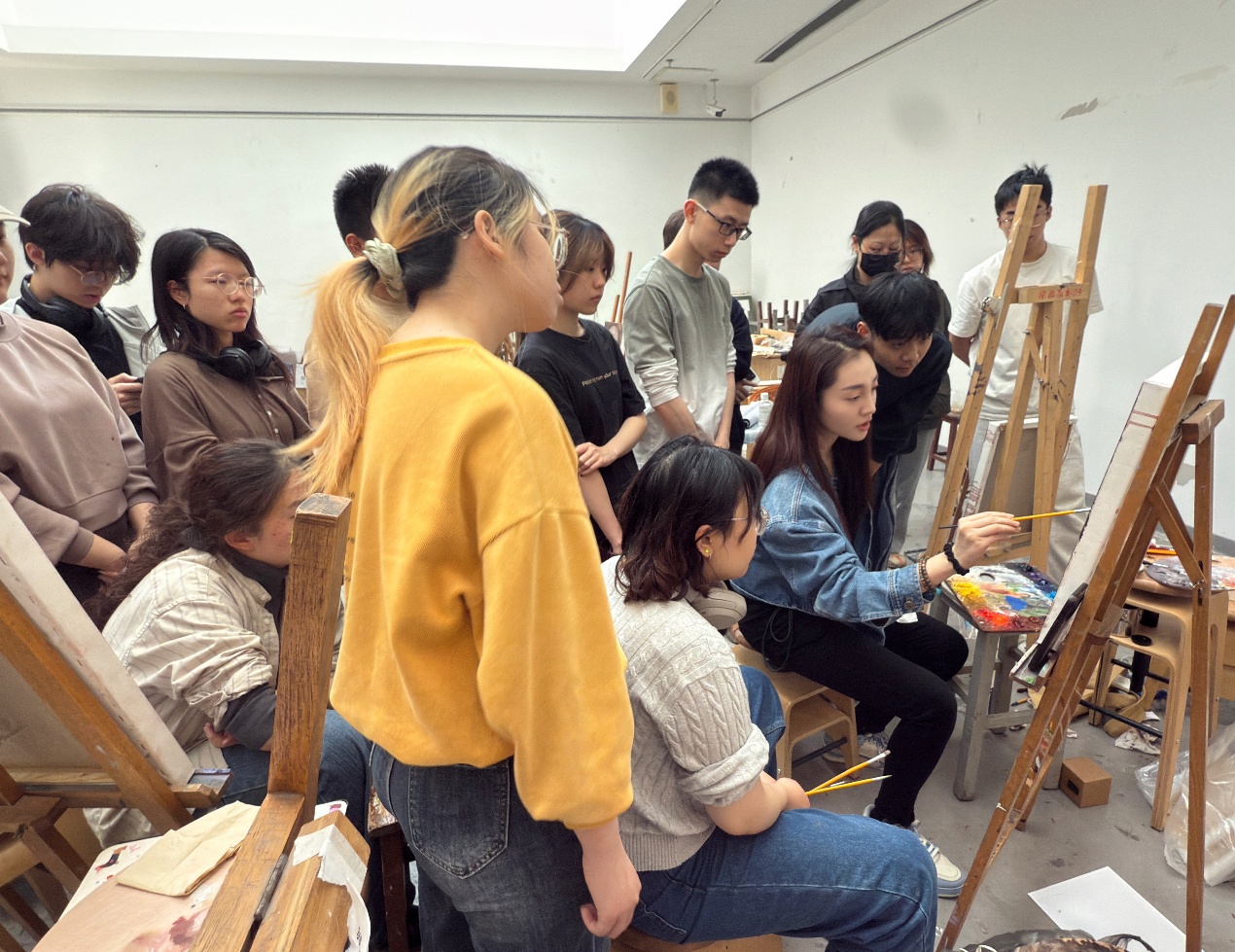
In her classes, students are encouraged to conduct pre-class research, raise questions, and engage in group discussions and critical analysis. When exploring “Impressionism and the Color Revolution,” Yu Wanying guides students to compare Monet’s use of color with that of Chinese landscape painting, extending the discussion to broader reflections on Eastern and Western aesthetic philosophies.
These methods quietly transform the classroom atmosphere, students no longer mechanically copy works but instead begin thinking more deeply. One moment that stayed with Yu was when an architecture student shared how insights gained from a class exercise on form later influenced his building designs. “This is perhaps the magic of teaching,” she reflects.
Her exchanges with students have led her to an important realization: “There is no singular standard for understanding art. Each person’s perception of beauty is unique. What truly matters in art is the method of seeing and the manner of expression.” She recognizes that “cultivating intuition and imagination is a defining feature of art education. Education is not just about nurturing logical thinking, intuition and creativity are equally vital, forming indispensable components of innovative thought.”
Teaching Is Not Just a Duty, It’s a Mission
This year marks Yu’s fifth as a faculty member at Tsinghua Academy of Arts & Design. Over this period, she has taught 15 undergraduate courses, spanning diverse disciplines and students from multiple departments. Regardless of the course title, she adheres to a philosophy of “personalized teaching through aesthetic education,” infusing each lesson with passion and intellectual rigor. For her, “these courses share a common essence: using art to help students reawaken perception, reshape thinking, and rediscover the meaning of life itself.”
Yu remains deeply engaged in research and creative work. In recent years, she has published two notable monographs: The Artistic Ideals of Humanities at Tsinghua (Part of Tsinghua University’s 110th Anniversary Series), Whispers of Ivy.
Her comparative study on “Western Classical Landscape Painting vs. Eastern Ancient Landscape Art” received support from the Ministry of Education’s Social Science Fund.
As Deputy Director of Tsinghua’s Aesthetic Education Research Institute, she has contributed to multiple national-level art education initiatives, served as a curator for the China National Arts Fund’s “Communication and Promotion Project” at the National Art Museum of China, and published over 20 academic papers, 10 of which appeared in top-tier journals such as: Chinese University Education, Journal of Nanjing Arts Institute, Art Magazine, Art Observation. Her artistic achievements are equally noteworthy: I Devote Myself to the Nation (Commemorating the 60th anniversary of China’s first atomic bomb test; supported by the National Arts Fund Youth Creation Project), Yan’an for the People (Collected by the National Centre for the Performing Arts), Journey of Growth at Tsinghua (Selected for the 14th National Fine Arts Exhibition, Beijing showcase), Meditations on the Aegean Sea (Exhibited at the 8th Beijing International Art Biennale; collected by the National Art Museum of China), Pressing Ahead with Collective Resolve (Preserved in Tsinghua’s University History Museum). Multiple awards at the National College Faculty Teaching Practice Exhibition, including “Outstanding Teaching Demonstration Work” and “Award of Excellence.”
Featured Works:
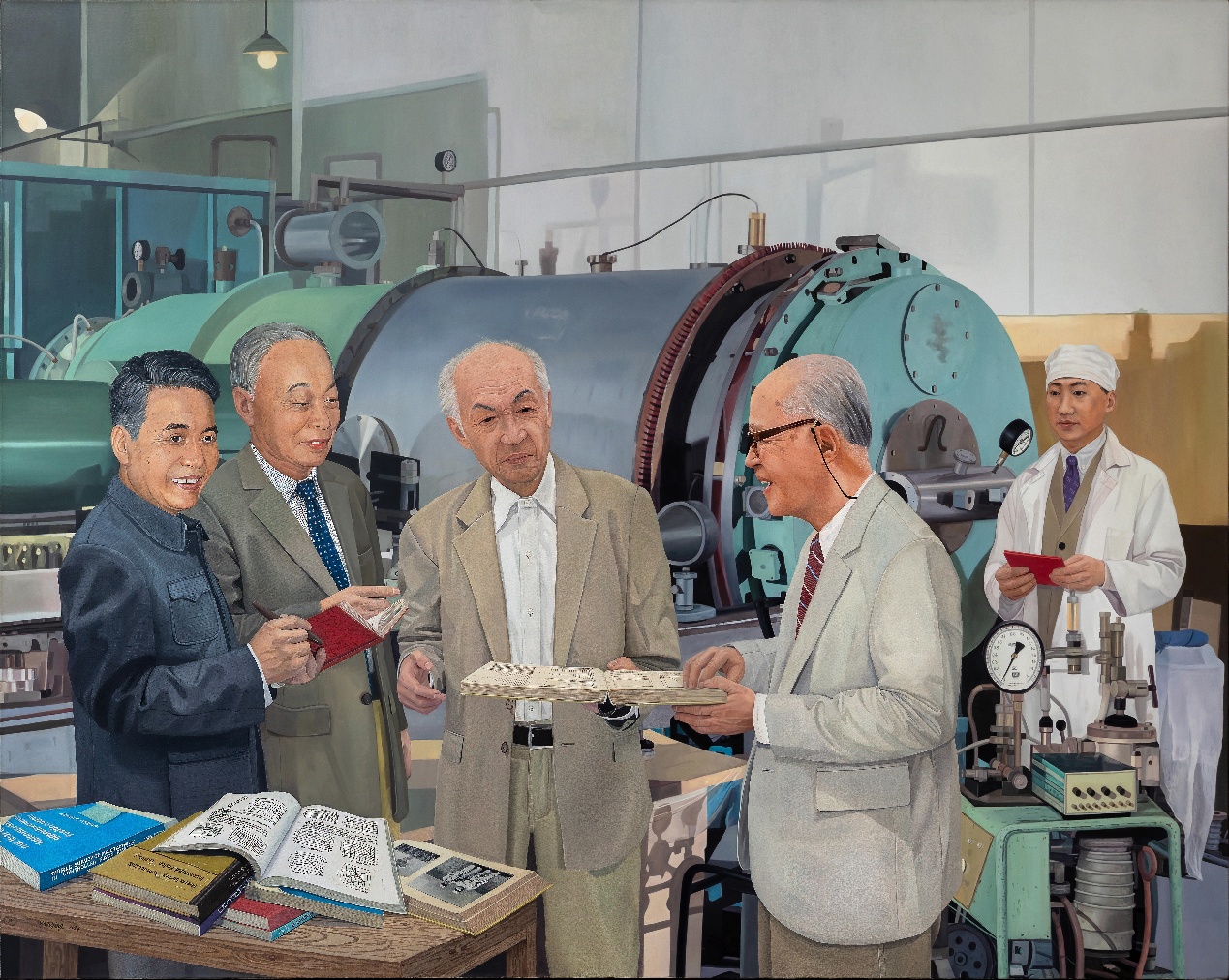
I Devote Myself to My Country (Oil on canvas)
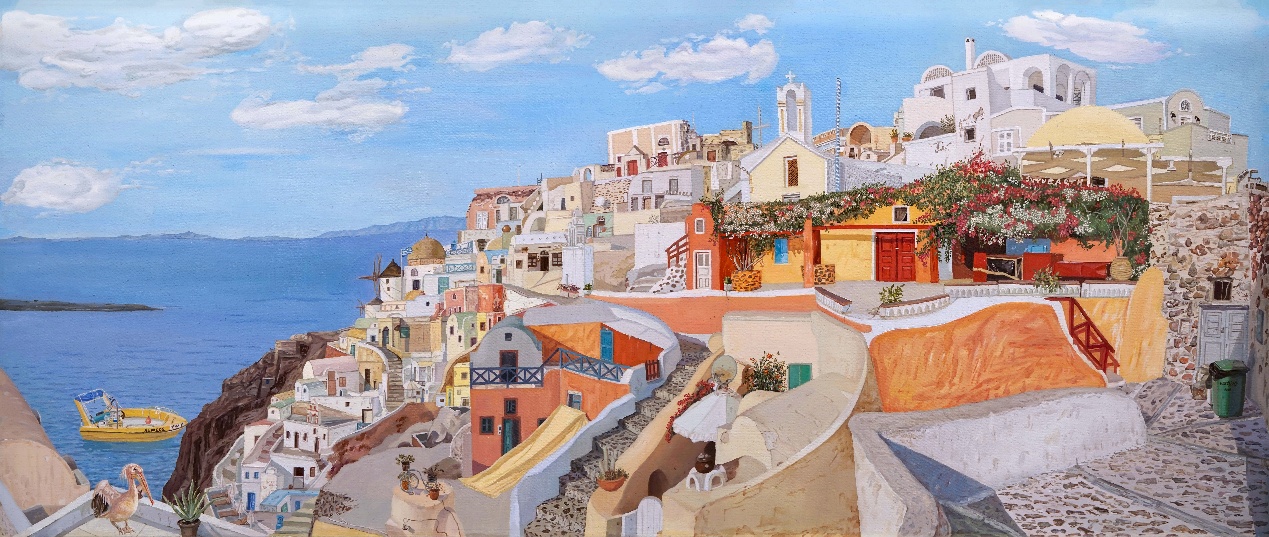
Meditations on the Aegean Sea (Oil on canvas)
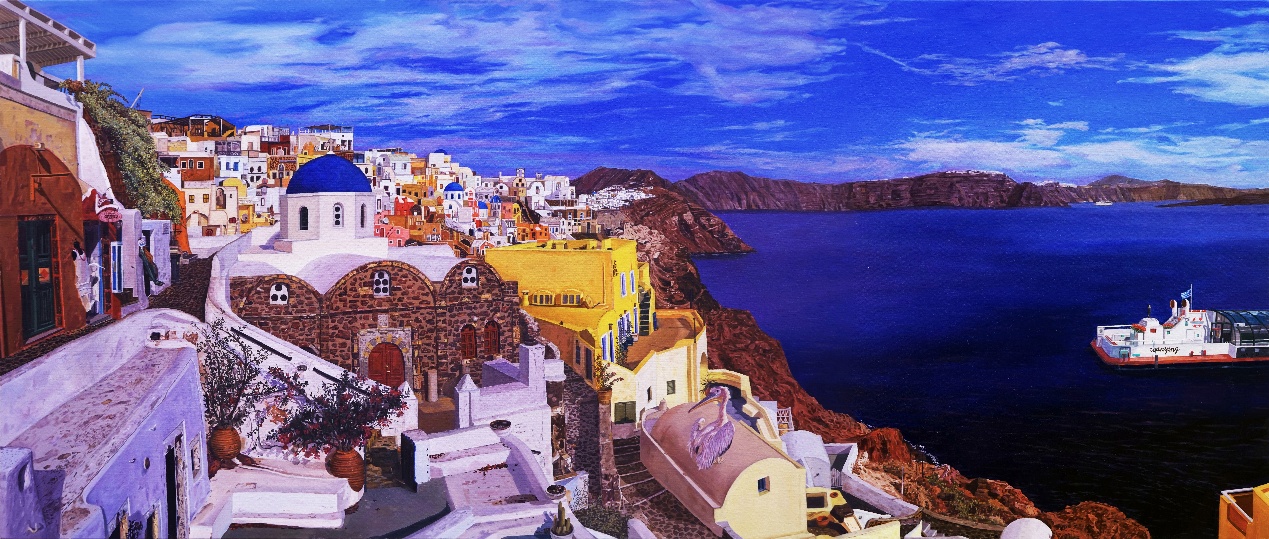
Aegean Twilight (Oil on canvas)
Her dedication to teaching reform and student development has borne fruit. This summer, she received Tsinghua University’s 2024 “Outstanding Young Faculty Teaching Award” (a prestigious honor granted annually to only 10 instructors).
“Teaching is not just a duty, it’s a mission,” she affirms. “This is what I strive for: awakening minds, one classroom, one lesson at a time, alongside my students.”
